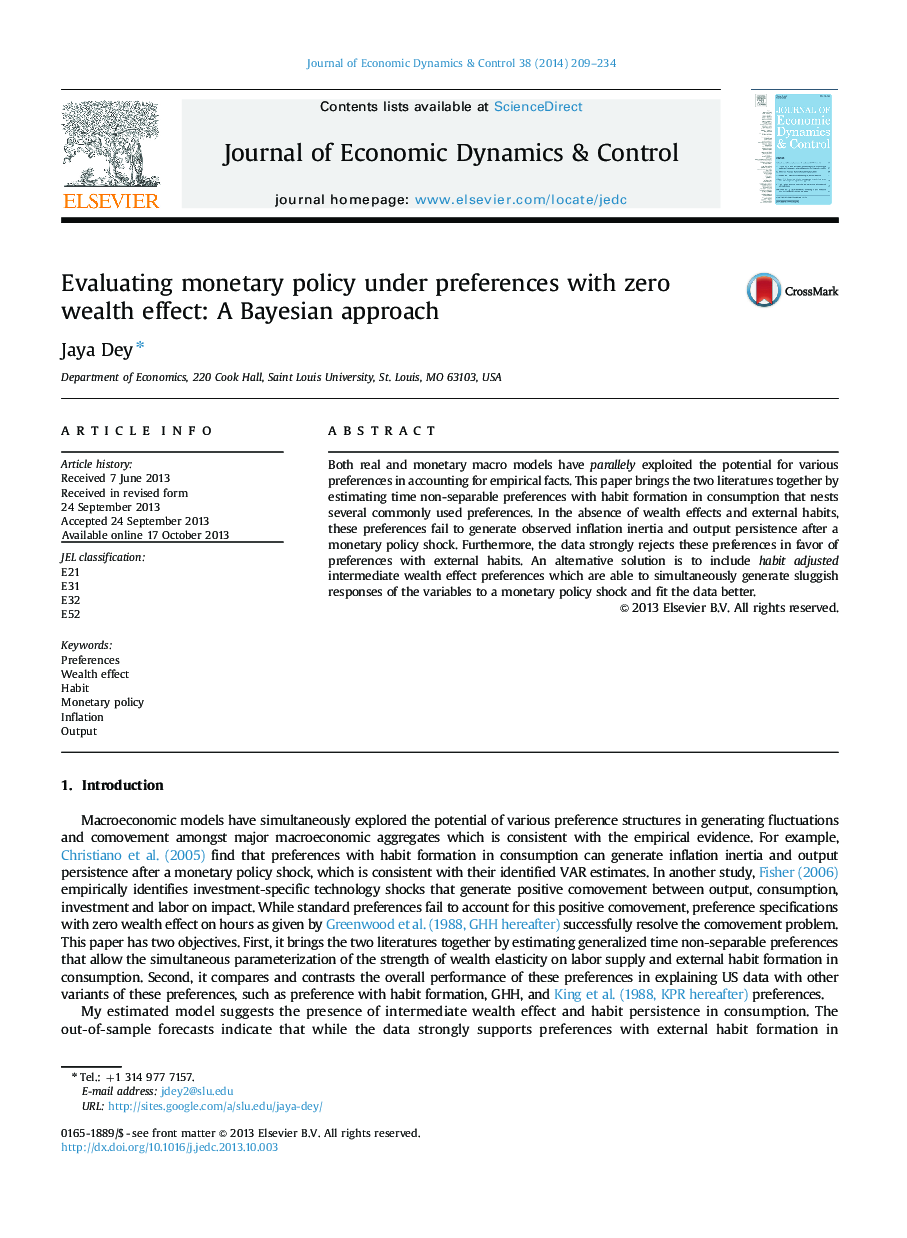| Article ID | Journal | Published Year | Pages | File Type |
|---|---|---|---|---|
| 5098595 | Journal of Economic Dynamics and Control | 2014 | 26 Pages |
Abstract
Both real and monetary macro models have parallely exploited the potential for various preferences in accounting for empirical facts. This paper brings the two literatures together by estimating time non-separable preferences with habit formation in consumption that nests several commonly used preferences. In the absence of wealth effects and external habits, these preferences fail to generate observed inflation inertia and output persistence after a monetary policy shock. Furthermore, the data strongly rejects these preferences in favor of preferences with external habits. An alternative solution is to include habit adjusted intermediate wealth effect preferences which are able to simultaneously generate sluggish responses of the variables to a monetary policy shock and fit the data better.
Related Topics
Physical Sciences and Engineering
Mathematics
Control and Optimization
Authors
Jaya Dey,
